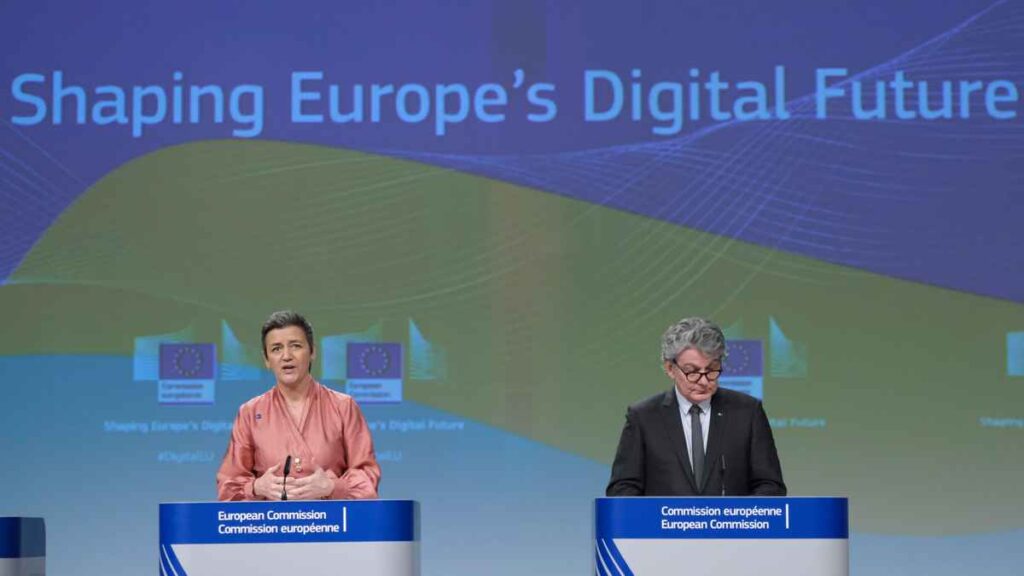
Europe’s antitrust regulators marked their biggest win on Wednesday after Google lost an appeal on a $2.8 billion for attempting to monopolize shopping services while downgrading competitors’ services.
The win signaled the European Commission’s first major triumph against one of the Big Tech giants out of three key court rulings aimed at heightening regulations on the tech industry in the continent.
While these companies are not headquartered in Europe, it seems the EU’s wrath on the industry has extended beyond Washington’s hastiness to regulate the Silicon Valley tech sector.
In 2017, the world’s most popular search engine was hit with a $2.77 billion fine for its favored behavior towards pricing comparison services to obtain unjust shopping advantages over its competitors in Europe. The fine marked the Commission’s largest penalty ever issued at the time.
The EU’s chief competition Commissioner, Margrethe Vestager, led the probe into the company’s demeanor in anti-competitive behavior in a series of investigations, with three fines accumulating to $9.46 billion.
Google had already appealed the first two penalties addressed towards its business conduct and will most likely follow the same tactic for the Commission’s latest fine. However, it seems that the titan’s appeals for its two initial fines will be faced with discontent from the EU, given that grounds for appeal are not as compelling as the regulator’s arguments.
The first fine emphasized how the search engine was directly breaching Europe’s antitrust rules by enforcing unlawful constraints on Android device manufacturers. The second fine – known as the case of AdSense – was directed at Google incorporating restrictive clauses in contracts with some of the biggest names in the market.
“Google favors its own comparison-shopping service over competing services, rather than a better result over another result,” the court stated in the last verdict.
“Even if the results from competing for comparison-shopping services were more relevant, they could never receive the same treatment as results from Google’s comparison-shopping service in terms of their positioning or their display,” it explained.

The General Court has vocalized its support to the Commission’s ruling against the giant’s past demeanor. A support that will definitively empower the EU’s ruling and empower Vestager’s stance in investigating Amazon, Apple, and Facebook in their conduct against their competitors.
This will also play a significant part in declining Google’s appeals for the fines.
“The General Court largely dismissed Google’s action against the decision of the Commission finding that Google abused its dominant position by favoring its own comparison-shopping service over competing for comparison-shopping services,” the Court stated.
According to the judiciary authority, the EU has rightfully deemed Google’s misconduct towards its competitors harming the market’s fair competition and disregarded the search engine’s argumentative stance that the current merchant platform revealed high levels of rivalry.
In parallel, the court of law supported the Commission’s penalty, disclosing that the significant nature of the transgression from Google’s part “was adopted intentionally, not negligently.”
From its part, Alphabet’s unit stated that it would revise the verdict, in addition to showing utmost compliance with the Commission’s ruling to guarantee an equal level of play for its competitors. However, it failed to mention that it will appeal to the EU Court of Justice (CJEU), Europe’s leading court.
“The Commission will continue to use all tools at its disposal to address the role of big digital platforms on which businesses and users depend to, respectively, access end-users and access digital services,” EU executives said in a statement.
The Commission hailed the General Court’s ruling by announcing that it will present the needed legal transparency to the market.